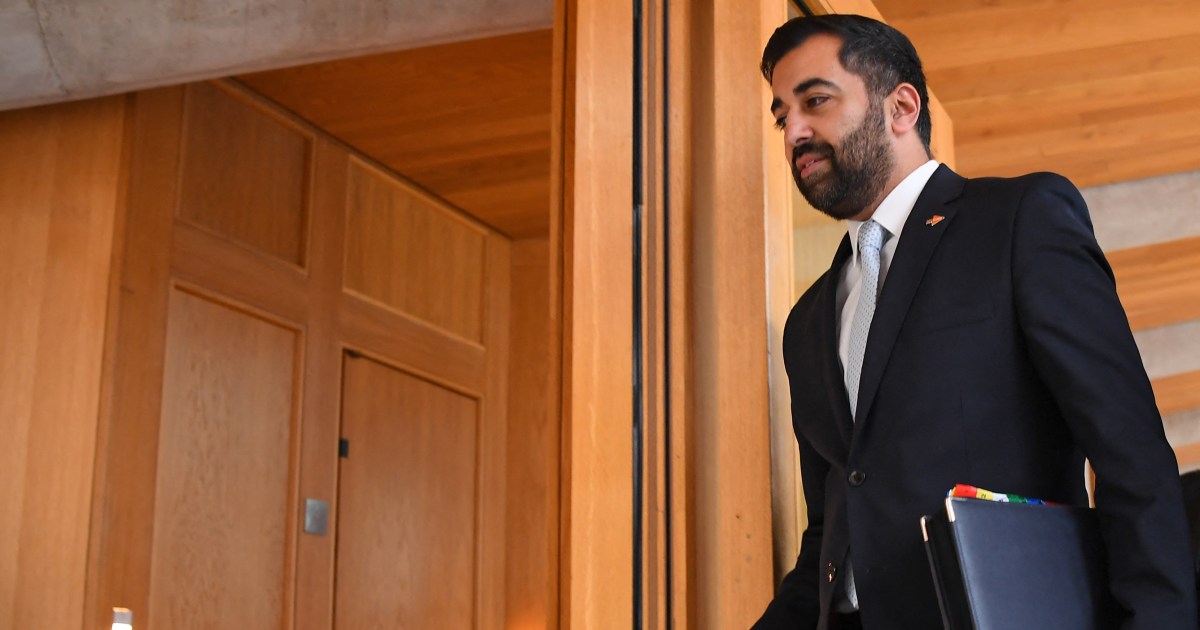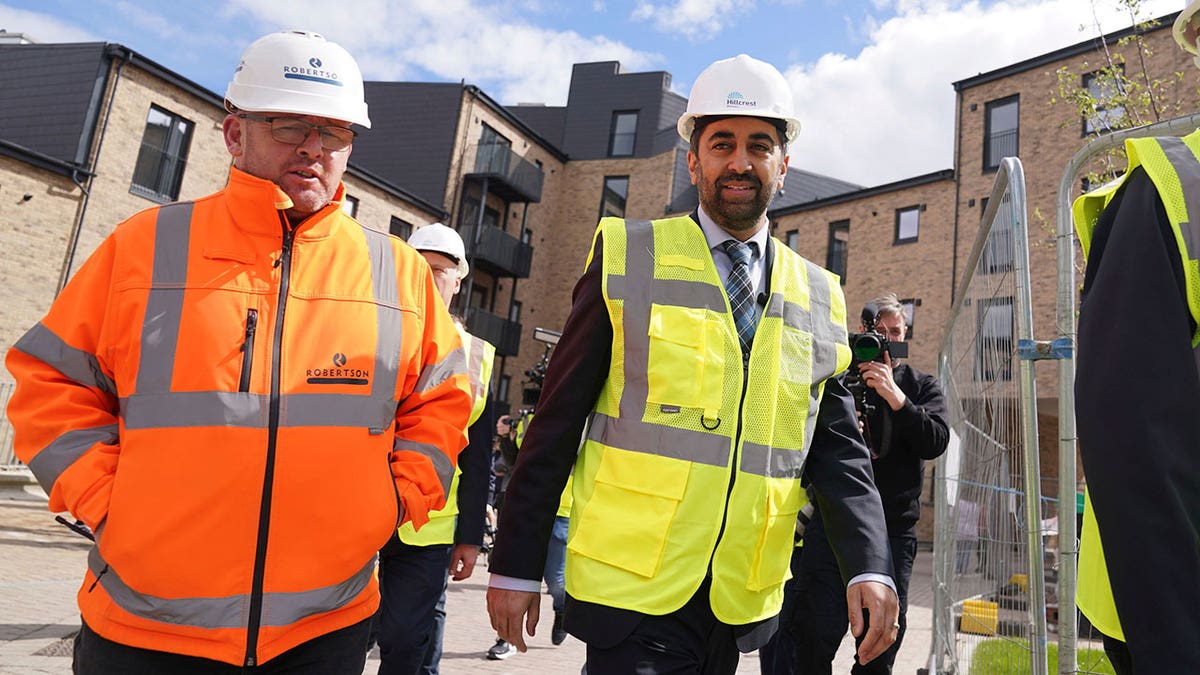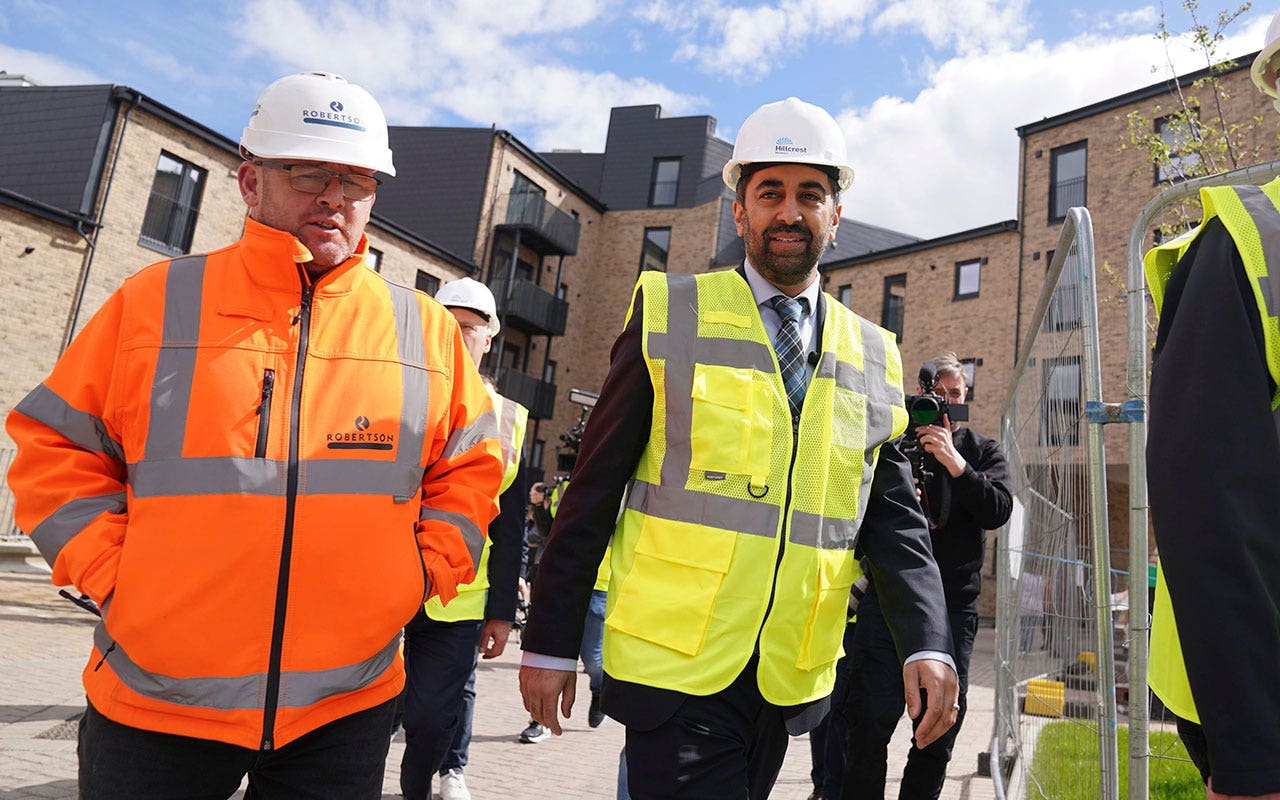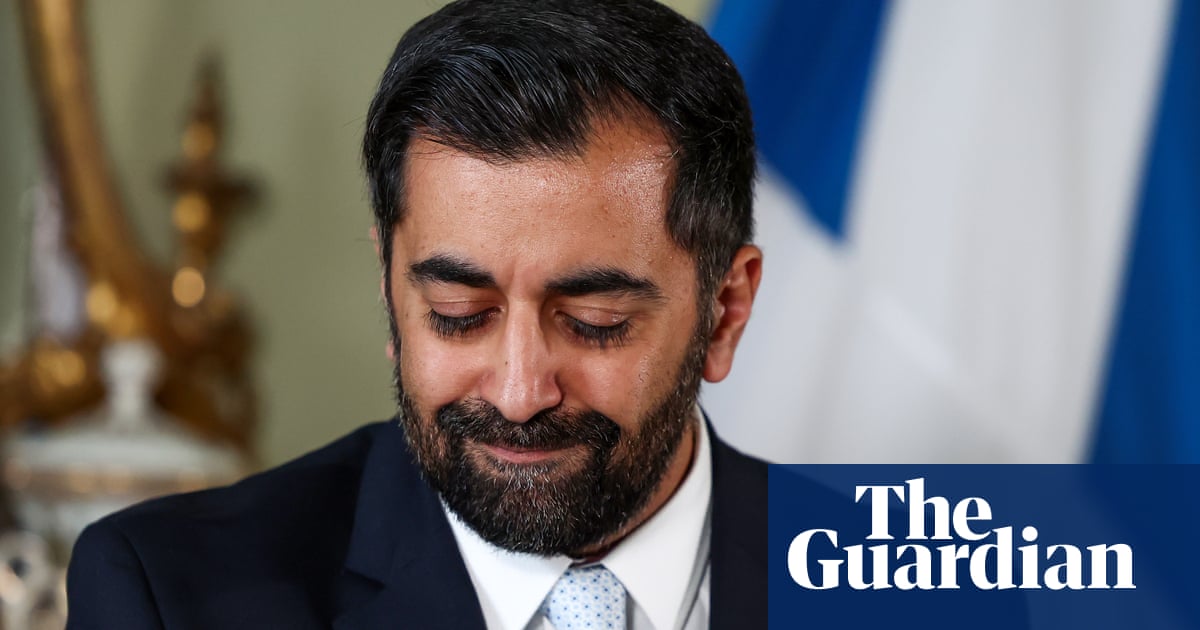
In a dramatic turn of events, Scottish First Minister Humza Yousaf has decided to withdraw from a coalition agreement with the Greens and attempt to run a minority government. This decision has led to growing pressure from political opponents, prompting the opposition Scottish Conservatives to say they would lodge a vote of no confidence in him. However, Yousaf remains confident that he will win the upcoming vote of no confidence against him.
The coalition agreement between Yousaf's Scottish National Party (SNP) and the Greens was signed in 2021 as part of an effort to create a progressive government focused on climate change and other environmental issues. However, Yousaf's decision to end the agreement stems from a dispute over a decision to scrap a climate change emissions reduction target last week.
The move has been met with criticism from various parties, including the Greens who called it an act of political cowardice by the SNP. Green co-leader Lorna Slater said that the party would not support Yousaf in a vote of no confidence, as they no longer have confidence in a progressive government in Scotland doing the right thing for climate and nature.
In addition to facing a vote of no confidence, Yousaf's minority government will face challenges in passing legislation and governing effectively without the support of the Greens. However, Yousaf has promised to work with all parties in parliament to achieve goals and pursue a different arrangement that he believes is in the best interest of Scotland.
The Scottish Conservatives have called Yousaf a failed first minister, weak, and unfit for office. The SNP has faced internal squabbling, resignations, fraud claims, and a fall in support recently. This latest setback may further impact the party's reputation and ability to govern effectively.
In response to the situation, Scottish Labour Party leader Anas Sarwar said that an election is needed to give Scotland a fresh start. With the Conservatives, Labour, Greens, and Liberal Democrats all indicating they have no confidence in Yousaf, he would need the support of Ash Regan - a former SNP lawmaker who left the party last year - to remain as first minister. If Yousaf lost the vote of no confidence, parliament would have 28 days to choose a new first minister before an election was forced.
The SNP-Greens deal, known as the Bute House Agreement, was signed in 2021 and gave the SNP a majority in the Scottish Parliament at Holyrood. The agreement aimed to create a greener, fairer independent Scotland by cooperating and building consensus on key issues such as climate change and independence from the UK.


